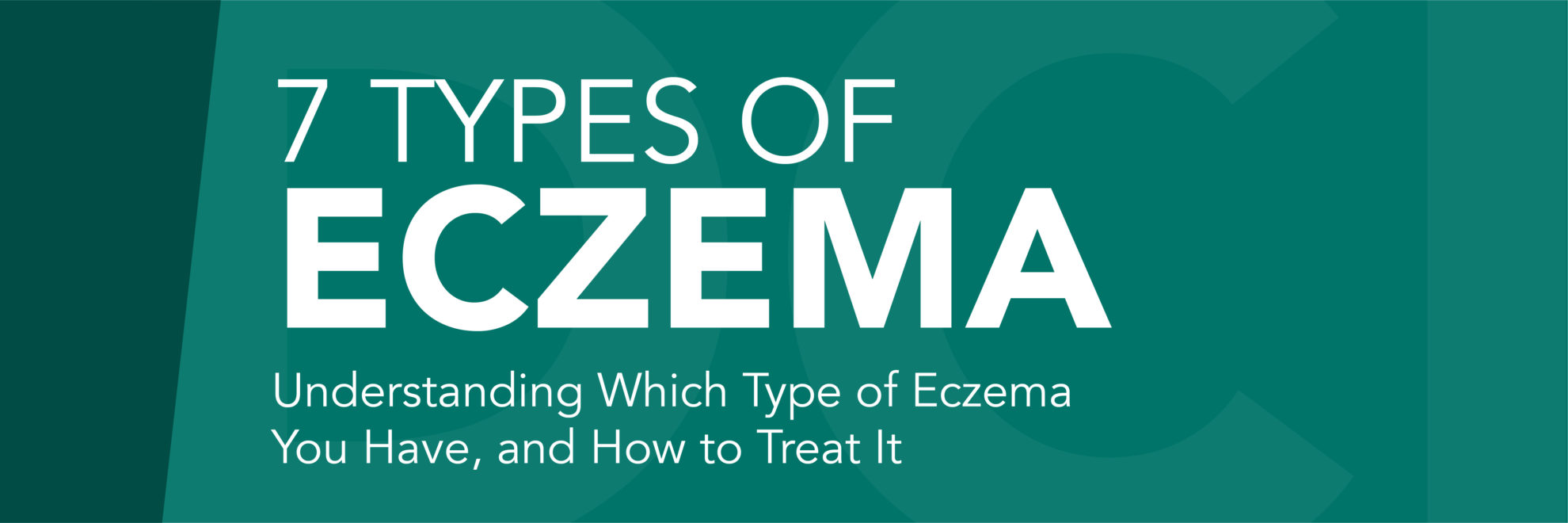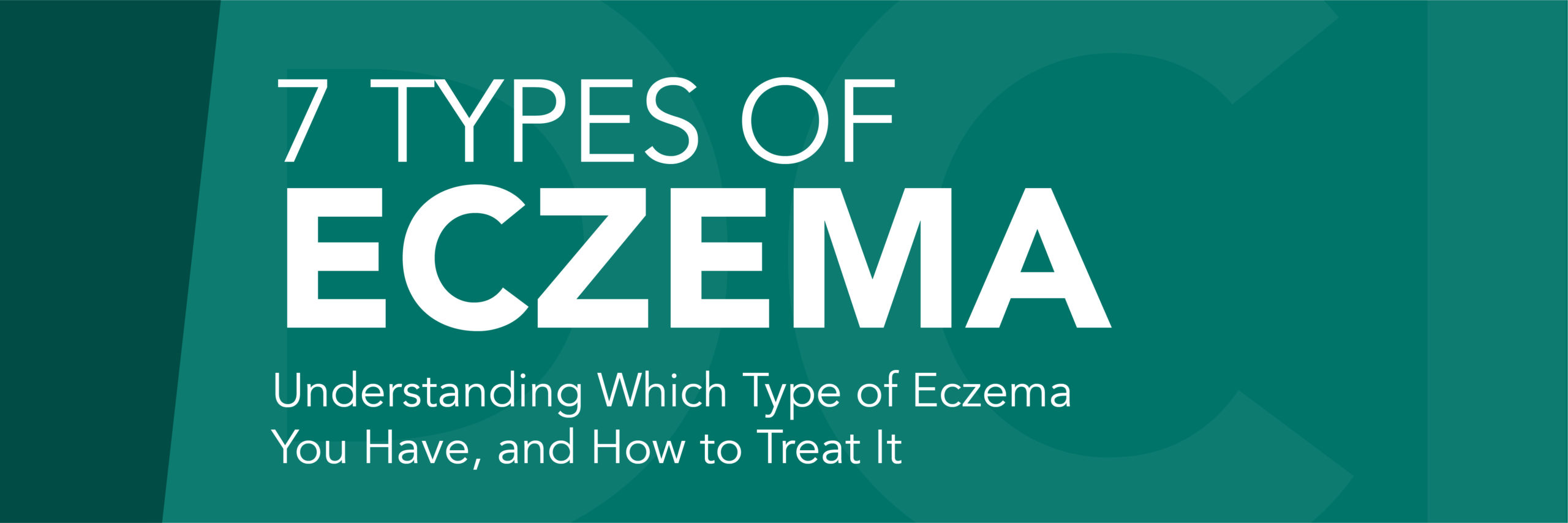
Understanding Which Type of Eczema You Have, and How to Treat It
If you’ve been diagnosed with eczema, were you also told which of the types of eczema you have?
The word eczema can be used as a generic type of skin rash. There are actually multiple different types of eczema, and it’s important to know which type you have because they all have different symptoms, characteristics, and different approaches to treatment and management.
Starting With the Basics: What is Eczema?
Eczema is a very common, non-contagious skin condition that causes dry, itchy, red, and often bumpy patches on the skin. It can be quite uncomfortable but is manageable with the right treatment.
Eczema, which is a type of dermatitis, is actually the name for a group of different conditions, and each manifest differently and can require different treatments. Eczema causes the skin to lose its ability to act as a barrier, which initiates an inflammatory response. Without the barrier function, your skin is left open to irritation, dryness, or infection.
What Are the Most Common Types of Eczema?
Because all dermatologists at Optima Dermatology are board-certified and committed to your care and best course of treatment, we won’t just diagnose you with eczema; we will tell you the specific type of eczema you have. Eczema manifests in different ways, and depending on which type you have, the best treatment for eczema can vary.
Here Are 7 Types of Eczema:
Atopic Dermatitis (AD)
Atopic Dermatitis begins with itchy skin that forms a rash. It affects infants, children, and adults. In adults, AD often manifests on the hands or eyes as dry, scaly, or patchy areas. Common symptoms include itching, and raw, bleeding, or oozing skin.
Contact Dermatitis
Caused by an irritant that comes in contact with your skin and triggers an itchy, rashy reaction. In some cases, the cause is as simple as the laundry detergent you’re using, but it can also be more difficult to know what you are coming in contact with that is irritating your skin.
Dyshidrotic Eczema
Also called pompholyx, this type of eczema causes tiny, highly itchy blisters on the hands and feet and can become chronic. The most effective treatment is identifying the allergen that is triggering the blisters.
Hand Eczema
Deep, painful cracks on the hands accompanied by excessively dry or chapped skin. It can lead to painful, bleeding blisters that are uncomfortable and hard to manage, and traditional hand creams and moisturizers do little to relieve the symptoms.
Neurodermatitis
Highly common among adults and tends to affect only one or two patches on the body, as opposed to other types of eczema that affect multiple areas at once. The cause of Neurodermatitis is unknown, but treatments are highly effective.
Nummular Eczema
Typically brought on by extremely dry skin, Nummular Eczema manifests as itchy, red bumps and can look similar to Atopic Dermatitis and Ringworm. Moisturizing treatments are the most helpful for preventing Nummular Eczema.
Stasis Dermatitis
Primarily affects the lower legs and feet, causing inflammation, swelling, itchiness, scaling, and hyperpigmentation. In some cases, ulceration occurs. Stasis Dermatitis is caused by chronic edema or swelling, and treatment is highly focused on a self-care routine.
Which Types of Eczema are Most Common?
Atopic dermatitis (AD) is the most common type of eczema, affecting about 16.6 million U.S. adults, according to the National Eczema Foundation.
Contact dermatitis is also quite common, affecting about 1 in 5 people simply because it’s brought on by contact with an irritant. Think of how many potential irritants and allergens your skin comes in contact with on a daily basis. From a necklace chain to body wash, there is a high likelihood that something will cause a contact dermatitis reaction on your skin in your lifetime.
What Are the Different Treatment Options for Each Type of Eczema?
Although there are several different types of eczema, they are all treatable using a combination of medicated solutions and self-directed care, such as avoiding allergens and triggers.
Everyone is different, and eczema can affect different people in different ways, and with varying levels of severity. Only by working with your board-certified dermatologist can you identify a treatment plan that will appropriately address your specific type of eczema and symptoms.
I Think I Have Eczema – When Should I Seek Medical Treatment?
We recommend that anyone who is suffering from symptoms that appear to be eczema should seek medical treatment from a board-certified dermatologist. Even if the condition turns out to be another, similar, skin issue such as psoriasis, a medical examination is important to diagnosis and proper treatment.
Being seen by a dermatologist is also the best way to find out which type of eczema you have and begin the most appropriate treatment and management plan.
Even if your eczema symptoms aren’t disrupting your daily life or terribly bothersome, you can prevent worsening of symptoms by treating it as soon as possible. We are here to help!
Taking the First Steps
Eczema can affect everyone differently, but all types of eczema are treatable using a combination of medicated treatment and self-directed care, such as adopting a healthy skincare routine and identifying and avoiding allergens and triggers.
Your first step in treating and managing eczema should be visiting your board-certified dermatologist to identify which type of eczema you have so you can become informed about how to keep it under control.
Request an appointment to discuss the best treatment plan for your eczema.
